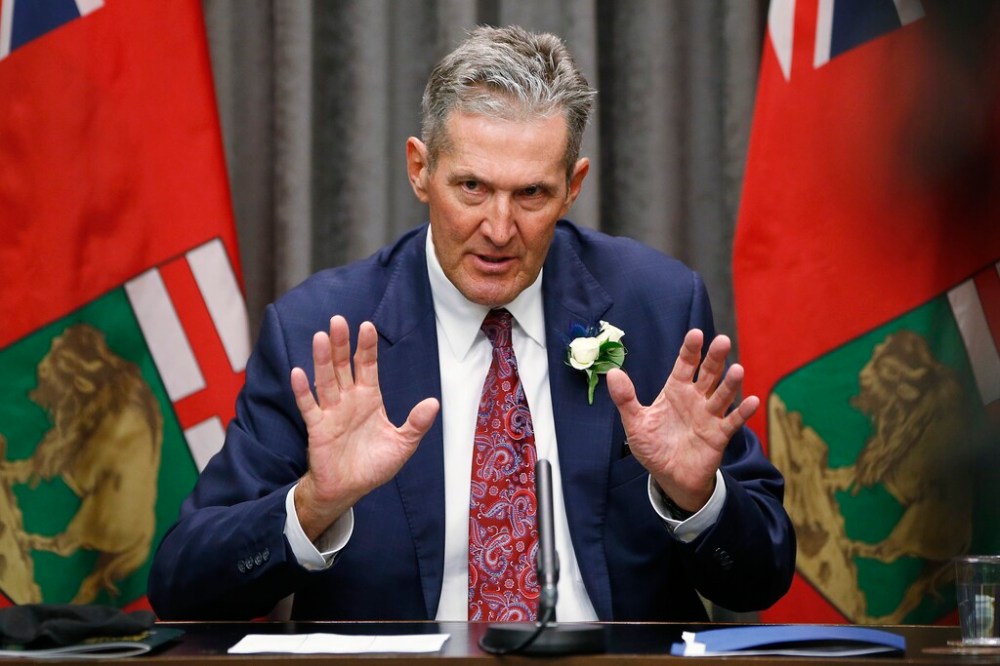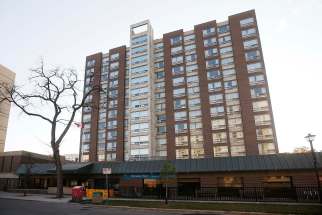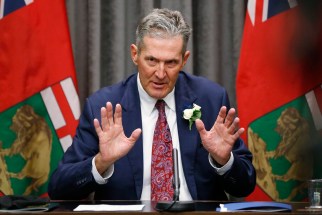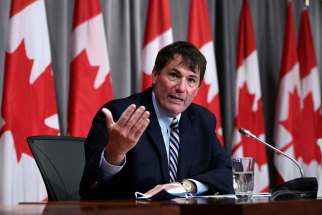Should Pallister stay or should he go?
Read this article for free:
or
Already have an account? Log in here »
To continue reading, please subscribe:
Monthly Digital Subscription
$0 for the first 4 weeks*
- Enjoy unlimited reading on winnipegfreepress.com
- Read the E-Edition, our digital replica newspaper
- Access News Break, our award-winning app
- Play interactive puzzles
*No charge for 4 weeks then price increases to the regular rate of $19.00 plus GST every four weeks. Offer available to new and qualified returning subscribers only. Cancel any time.
Monthly Digital Subscription
$4.75/week*
- Enjoy unlimited reading on winnipegfreepress.com
- Read the E-Edition, our digital replica newspaper
- Access News Break, our award-winning app
- Play interactive puzzles
*Billed as $19 plus GST every four weeks. Cancel any time.
To continue reading, please subscribe:
Add Free Press access to your Brandon Sun subscription for only an additional
$1 for the first 4 weeks*
*Your next subscription payment will increase by $1.00 and you will be charged $16.99 plus GST for four weeks. After four weeks, your payment will increase to $23.99 plus GST every four weeks.
Read unlimited articles for free today:
or
Already have an account? Log in here »
Hey there, time traveller!
This article was published 07/10/2020 (1891 days ago), so information in it may no longer be current.
What should Premier Brian Pallister do for an encore?
Some 53 months after he won his first commanding majority mandate, and just 13 months after an impressive repeat victory, Manitoba’s towering first minister is facing a crossroads: having produced the first balanced budget in more than a decade, does he stay on the job to help navigate the COVID-19 crisis, or lean into his past accomplishments and the legacy they create?
Manitobans will be debating Pallister’s methods for years to come, but the accomplishments are clear: a balanced budget, a smaller government and modestly lower taxes, mostly stemming from a cut in the provincial sales tax. He did not materially improve the quality or level of service offered to citizens, but he didn’t wreck anything, either.
For many Manitobans, those last 53 months translate into some lean, hard years. However, for those who believe that a balanced budget and lower taxes are rewards in and of themselves, Pallister has been an unmitigated success.

Does all that provide Pallister with a clear and unambiguous motivation to retire? There are certainly compelling reasons for him to stay, and to go.
On the stay side, we have the tantalizing opportunity for Pallister to serve as the leader with his hand on the rudder when Manitoba inevitably emerges from the grips of the pandemic.
No one is sure when economies all over the world will begin to recover because nobody knows when a vaccine will become a reality.
But it’s likely that sometime before the next election, now scheduled for 2023, we will see a post-pandemic recovery of significant proportion. Any political leader who has lived through the worst part of the earliest days of the pandemic would surely want to stick around to take a victory lap for bringing the provincial economy back to full capacity.
There is also the siren call of the electoral three-peat.
Winning three majority mandates in a row would put Pallister in the same rarefied historical category as legendary Tory premier Duff Roblin and NDP premier Gary Doer. Although politicians dismiss suggestions that they care about such things, you can bet Pallister has already cast an eye forward to 2023 (or earlier, as is his style) and wondered what it would be like to drink once again from the intoxicating chalice of victory.
There are, however, also a short list of reasons why he should go.
More than four years into his fiscal tough-love campaign, Pallister has become an important focal point for political opponents and the constituencies of voters who have suffered from his austerity agenda. Pallister will argue the balanced budget he wrangled in the most recent public accounts was worth the pain. Among voters, opinions will vary.
.jpg?w=1000)
The cruel political reality that Pallister faces is that his Progressive Conservative party would benefit from getting a new leader in time for the next election. Many governing parties, particularly those that have dished out heaping doses of tough love, have found new life and less troublesome baggage with new leadership.
It should be noted that Pallister is highly unlikely to see the strategic benefits of stepping aside. It is also unlikely there is anyone in the party who can convince him to step down to refresh the party brand.
However, there are a couple of pending issues that may force people to at least raise the possibility with Pallister. At the top of that list is the unresolved war of attrition with provincial civil servants.
Just over three years ago, Pallister passed the Public Services Sustainability Act, which would have imposed wage freezes on public servants. It was never proclaimed into law, but Pallister used the threat of proclamation to justify a nearly complete cessation of contract talks. The result was a de facto wage freeze.
In June, a Court of Queen’s Bench judge determined that the act was unconstitutional, a key victory for public-sector unions. The Pallister government has decided to appeal that decision, a strategy that kicks those unresolved contracts further down the road, and means the province could face a huge unfunded liability.
If the appeal fails as well, the province will be forced to negotiate new contracts that will date back several years. If it is forced into arbitration, or if unions are able to win unfair labour practice decisions, the Pallister government could be forced to pay back wage increases dating back to the inception of the act.

While some in the party relish the idea of continued sparring with unions, the cost of retroactive settlements could be significant enough to derail ambitious spending or tax cut plans, and certainly enough to cause a political leader to reconsider his retirement date.
It bears mentioning that Pallister did indeed produce some ambitious plans in Wednesday’s throne speech that include billions of dollars in new spending and tax cuts. It is highly unlikely those pledges can be accomplished before the next election. And that creates two possibilities for Pallister’s tenure as leader.
Either he has decided to defy his critics and stay on, or he is satisfied to unleash a torrent of aspirational pledges and then retire, leaving his party to wear them around its neck like an unfunded political albatross.
What will Pallister do for an encore? How about no encore at all.
dan.lett@freepress.mb.ca

Born and raised in and around Toronto, Dan Lett came to Winnipeg in 1986, less than a year out of journalism school with a lifelong dream to be a newspaper reporter.
Our newsroom depends on a growing audience of readers to power our journalism. If you are not a paid reader, please consider becoming a subscriber.
Our newsroom depends on its audience of readers to power our journalism. Thank you for your support.










